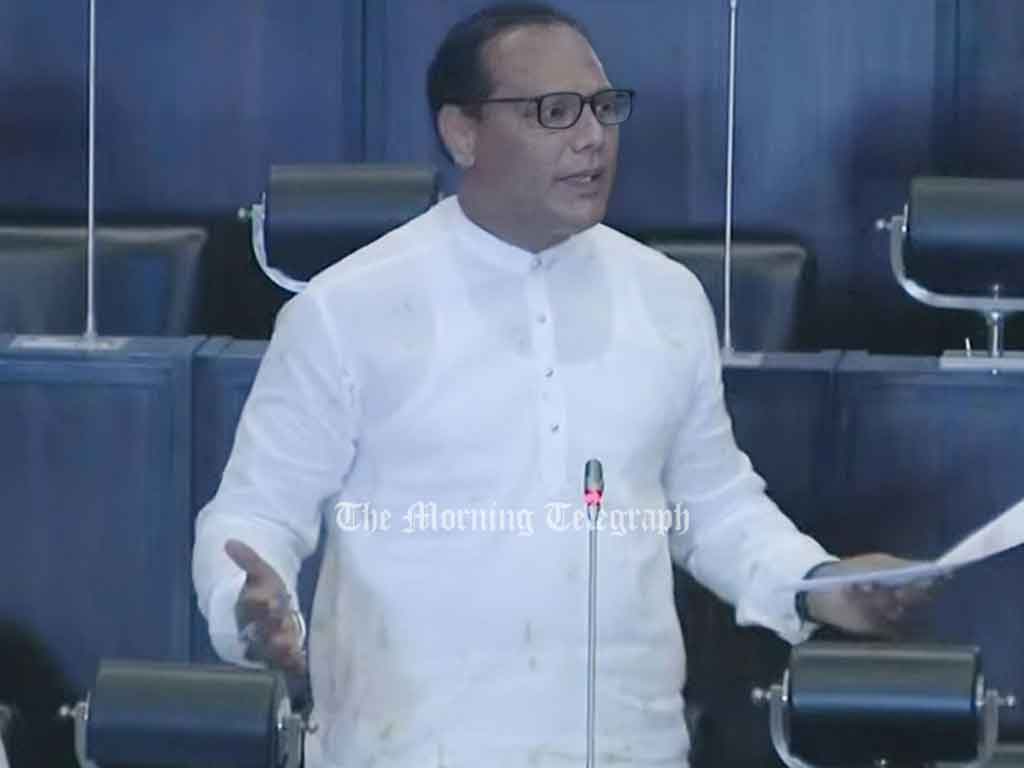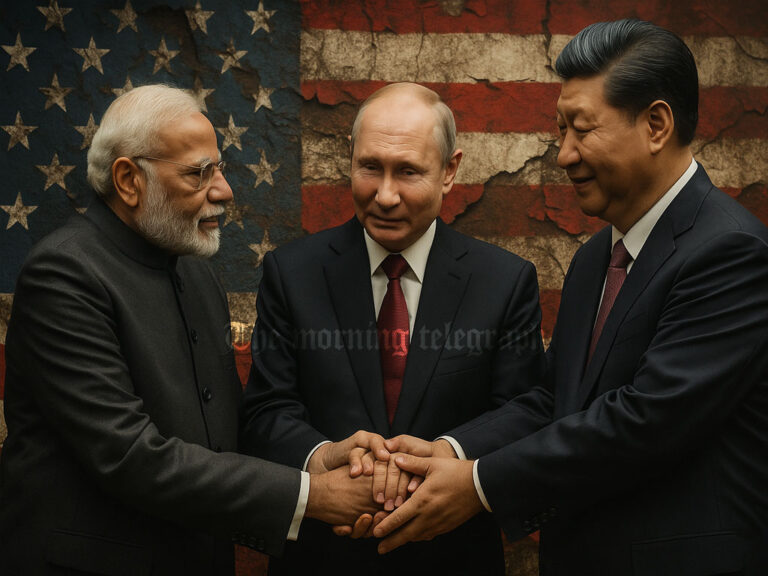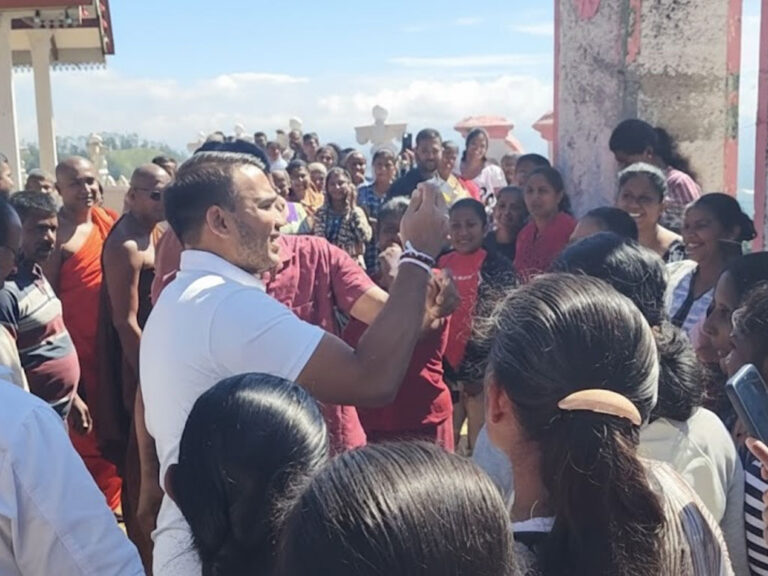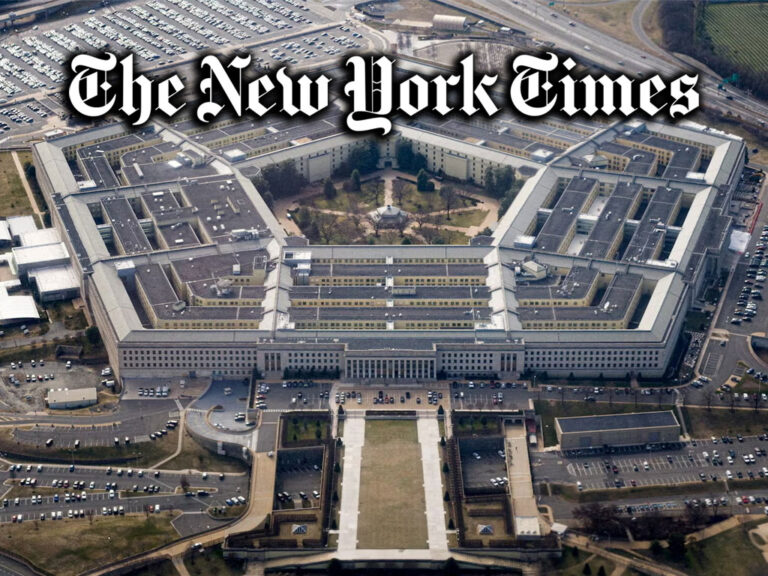
Letter to the Hon. Speaker by MP Dayasiri Jayasekara
Hon. Speaker,
Parliament of Sri Lanka
Subject: Breach of Privilege of a Member of Parliament
I raise this matter under Section 4 of Schedule (A) of the Parliament (Powers and Privileges) Act, under the privilege of freedom of speech and debate or the conduct of parliamentary business.
On the 4th, 5th, and 6th of this month (April), the Indian Prime Minister Shri Narendra Modi visited Sri Lanka, and according to media reports, around seven agreements were signed between Sri Lanka and India. Previously, both the President and the Minister of Foreign Affairs stated that more than 70 agreements had been signed with China.
Members of Parliament have a full right to be informed of any agreements signed between the Government of Sri Lanka and a foreign state. As a country, we have faced significant challenges due to agreements made by previous governments in secrecy—hidden from both the people and the Parliament. These agreements have continued to create difficulties even for subsequent governments. Any government enters into agreements not in the name of a president, political party, or administration, but on behalf of the country as a whole.
I have served as a member of the Parliamentary Security Advisory Committee for several years. The Indo-Lanka Agreement signed in 1987 has had long-lasting impacts on this country and has been widely discussed. India has supported us during times of hardship, and as a neighboring nation, our relationship has been shaped over thousands of years by both cooperation and conflict.
Despite this, there has been no communication or discussion in the Security Advisory Committee of Parliament regarding the security agreement signed by President Anura Kumara Dissanayake and Prime Minister Narendra Modi, nor any details about its contents.
When the previous government reached an agreement with the International Monetary Fund (IMF), the then-Opposition—including Sajith Premadasa and Anura Kumara Dissanayake—demanded that the agreement be tabled in Parliament before any debate. Although that debate never occurred, the present government is now implementing the IMF conditions agreed to by Ranil Wickremesinghe, with both advantages and disadvantages. The government, having promised during the election campaign to revise the IMF agreement through a debt sustainability analysis, has failed to deliver, reducing it to an illusion.
Under international law, the doctrine of dualism states that international agreements do not become law within a country unless approved by that country’s legislature. A good example of this is the 1987 Indo-Lanka Agreement signed by President J.R. Jayewardene and Prime Minister Rajiv Gandhi, which was ratified by a two-thirds majority in Parliament to be implemented in Sri Lanka. Likewise, Article 157 of our Constitution mandates that international agreements of economic importance must be approved by a two-thirds majority in Parliament.
Therefore, the alleged security agreement signed with India must be approved by Parliament before it can take legal effect. The President’s action of signing an agreement without even presenting it as a white paper to the Security Advisory Committee or a Sectoral Oversight Committee is a violation of parliamentary privilege, a serious undermining of Parliament’s authority, and an overreach of executive power.
The Janatha Vimukthi Peramuna (JVP) has historically led large-scale anti-India movements. Since 1971, they educated their members on Indian expansionism. Following the 1987 Indo-Lanka Accord, they launched campaigns to remove the Indian Peacekeeping Force with slogans like “Expel the Indian monkey army,” boycotted Indian goods, closed shops selling them, and even targeted and killed businessmen. This movement, driven by the motto “Motherland or Death,” resulted in the deaths of over 60,000 young people, more than 6,000 political figures, monks, priests, scholars like Acharya Maharaja, artists like Vijaya Kumaratunga, journalists like Premakeerthi de Alwis, and many ordinary citizens and government servants.
Had this anti-Indian movement not taken hold, we would not be discussing now the horrors of torture chambers like Batalanda. Therefore, such agreements should only be signed following discussions with all political parties, with full transparency. This government—especially the JVP, which once opposed such deals—must remember that entering into similar agreements today without public knowledge or parliamentary debate betrays its own past stance.
At a time when the QUAD (Quadrilateral Security Dialogue)—comprising the United States, India, Australia, and Japan—is becoming increasingly influential in the Indo-Pacific region, Sri Lanka signing a security agreement with a key member of that alliance significantly undermines our historic non-aligned foreign policy. It also risks jeopardizing our longstanding relationship with China, which, like India, has supported us through many crucial periods.
This situation threatens to harm our neutral foreign policy approach with global powers like the U.S., India, China, and Japan. As the General Secretary of the Sri Lanka Freedom Party, I am reminded of how former Prime Minister Sirimavo Bandaranaike maintained a neutral position in global conflicts such as the Indo-China and Indo-Pakistan wars. She believed strongly in keeping the Indian Ocean a zone of peace and upheld a policy of non-alignment. A small state should neither provoke nor submit to a powerful one. While the world once had two power blocs, we now face many. Therefore, our diplomacy should follow the principle: “Friendship with all, enmity with none.”
Maintaining a close and cooperative relationship with India is essential, but those decisions must be transparent and made in consultation with Parliament. The same parties who once opposed secret agreements now seem to be operating in secrecy. These very agreements, which were once denounced by the JVP as betrayals, are now being executed behind closed doors.
As a Member of Parliament and a member of the Security Advisory Committee, I can confirm that we were never informed of this Indo-Lanka agreement. Had the agreement been presented for discussion—as a white paper or in committee—we would have had the opportunity to provide our input.
President Anura Kumara Dissanayake, speaking to the Ranaviru Organization on August 19, 2023, himself questioned the implications of becoming a country connected to India through electricity, oil, gas, currency, culture, air, land, and sea. He suggested that such connections would make Sri Lanka dependent on India in every way. That same President, who once created fear around such dependencies, has now signed agreements without any transparency, without consultation with Parliament, political party leaders, or national experts.
This is a shocking reversal.
Therefore, I firmly state that the rights of Members of Parliament are being violated through the concealment of agreements allegedly signed with India and China. I request that all such agreements be immediately tabled in Parliament, and that adequate time be allocated for a comprehensive debate.
Respectfully,
Dayasiri Jayasekara, MP
General Secretary – Sri Lanka Freedom Party




